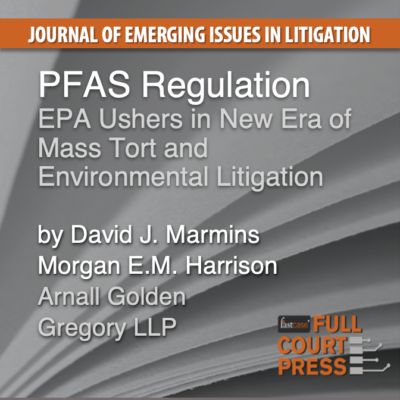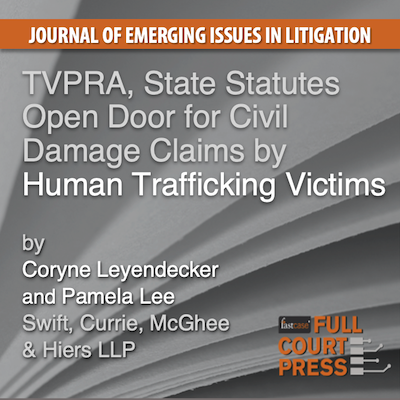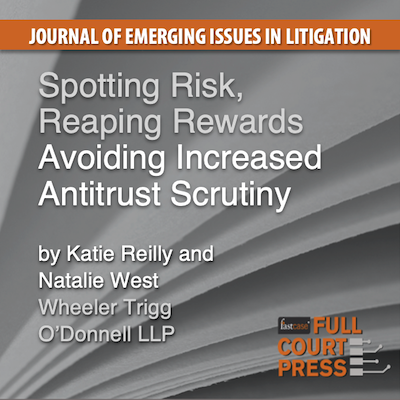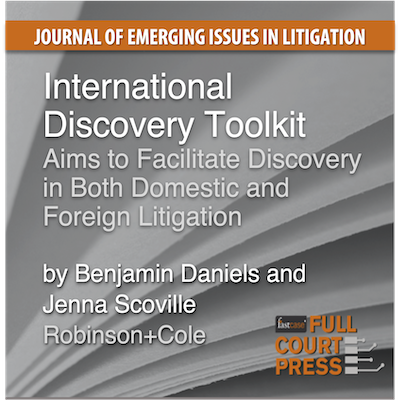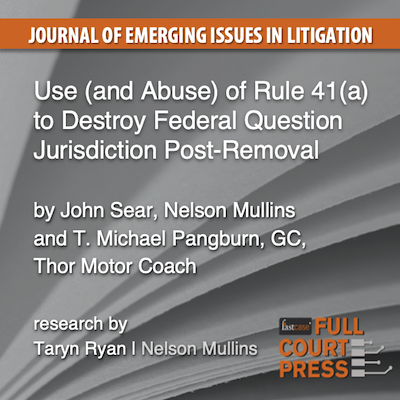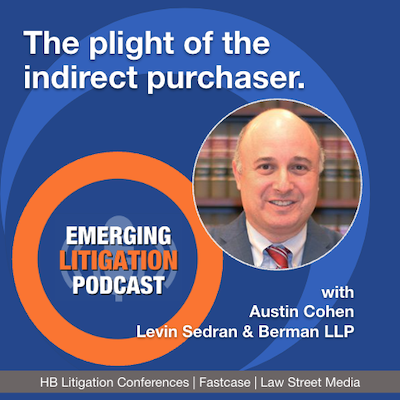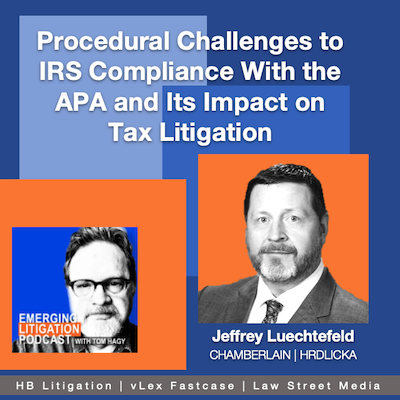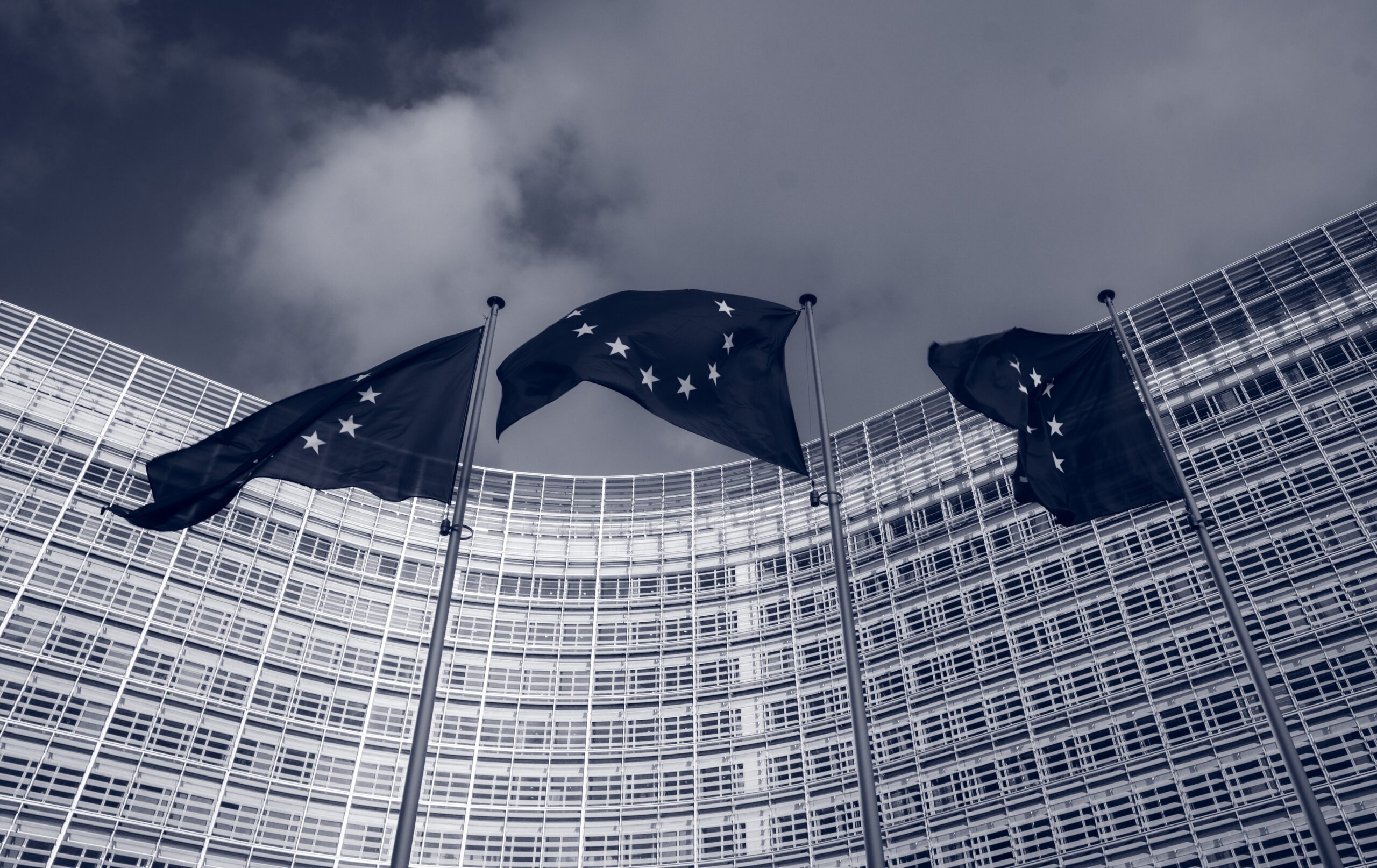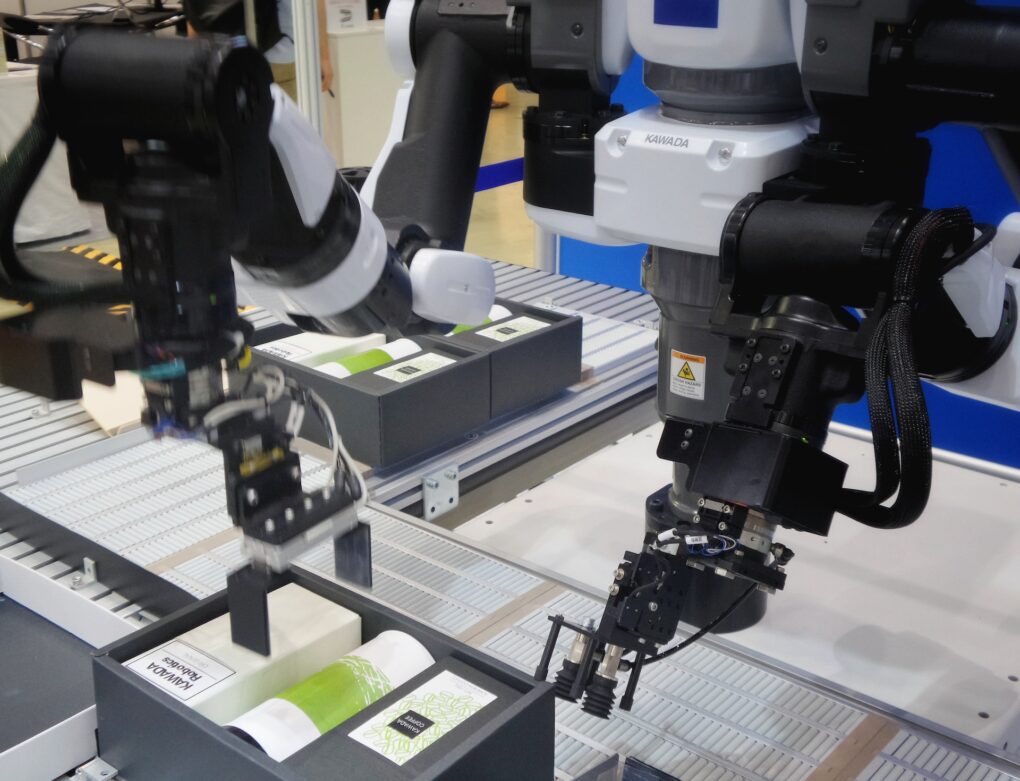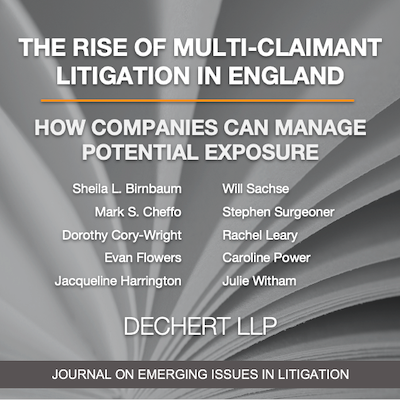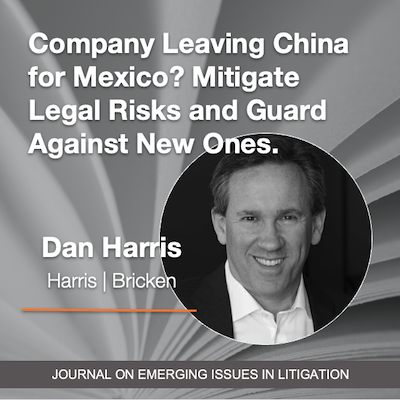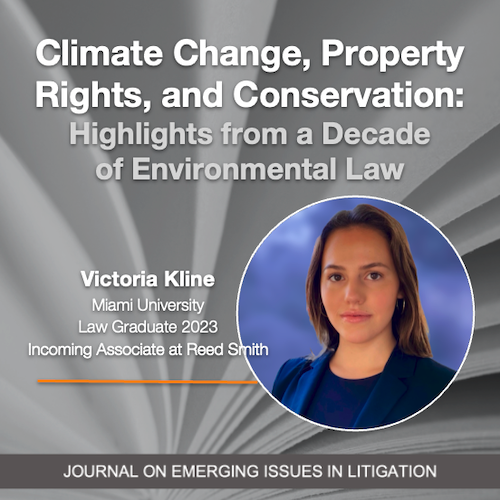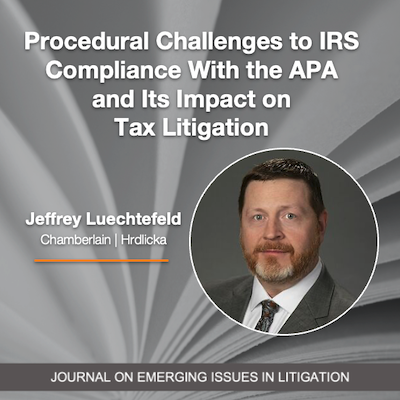Emerging Litigation Podcast
President Biden’s Critical Infrastructure Cyber Memo and CrowdStrike’s Whoopsie Daisy with Elizabeth Burgin Waller
In this episode, we discuss our nation's critical infrastructure in the context of cybersecurity, addressing President Biden's recent National Security Memorandum on Critical Infrastructure Security and Resilience and its implications for sectors like energy, water, and transportation, with guest Elizabeth Burgin Waller of WoodsRogers. Beth also comments on a recent global system glitch that underscores the vulnerability of the networks behind many of our most critical services. We're talking CrowdStrike and Microsoft Windows.
Trademarks, Copyrights, Brands, T-Shirts, and Champagne with Tiffany Gehrke and Kelley Gordon
In this episode, we discuss three matters relevant to anyone watching copyright and trademark law, or anyone fond of branded t-shirts and fancy French beverages, with guests Tiffany Gehrke and Kelley Gordon, both Partners at Marshall, Gerstein & Borun LLP. Listen and learn more! Tom even (somewhat) learned how to say something in French. Mon dieu, people!
Algorithmic Software Facilitated Price Fixing with Jonathan Rubin
Everyone knows that price fixing is against the law, chiefly Section 1 of the federal Sherman Antitrust Act of 1890. Competitors may not collude to set prices. However, there are relatively new price-calculation tools that some companies maintain take them out of the equation. With these tools, shared across an industry, firms do not have to directly swap private information with competitors. Instead, they feed their data to a third-party which uses algorithms to come up with prices. In this episode, we discuss what algorithmic or software-facilitated pricing is, what the law says about price collusion, how this new pricing mechanism violates the law, and recent developments in litigation. Our guest highly regarded antitrust attorney Jonathan Rubin, Partner and Co-Founder of MoginRubin LLP.
A Shameless Plug for Our Content Services
Your content marketing is everything you’ve ever dreamed of. Right?

Critical Legal Content was founded by Tom Hagy, former Editor & Publisher of Mealey’s Litigation Reports and VP at LexisNexis, founder of HB, current litigation podcaster and editor-in-chief. CLC’s mission is to help smaller firms and service providers not only create content — blogs, articles, papers, webinars, podcasts (like the stuff on this site) — but also to get it out there. How? Via social media, this website, your website, and potential via our podcast and journal which we publish in collaboration with vLex Fastcase and Law Street Media. The goal is to attract readers and dizzy them with your brilliance.
*Inspired by actual events.
Create content like a real legal publisher.
Emerging Litigation Journal
Class action alleges Ziploc misled consumers about harmful microplastics in its products
Amid rising concerns about toxic chemicals in consumer products, Apple finds itself under scrutiny. Guest contributor Justin Ward examines the controversy surrounding Apple’s smartwatch bands after researchers detected elevated levels of PFAS, or “forever chemicals.” While Apple insists its products are safe, a class action lawsuit alleges deceptive marketing and health risks, raising broader questions about accountability and chemical transparency in tech and apparel.
What DEI Changes Mean for Employers Featuring Patice Holland
As political and public scrutiny of Diversity, Equity, and Inclusion (DEI) programs grows, employment attorney Patice Holland of WoodsRogers joins the Emerging Litigation Podcast to explain how employers—especially federal contractors—can reassess DEI initiatives while staying compliant with discrimination laws, navigating shifting enforcement priorities, and managing legal, operational, and reputational risk. Tune in now!
Facing PFAS lawsuit, Apple claims watch bands are safe, but what does the evidence say?
Amid rising concerns about toxic chemicals in consumer products, Apple finds itself under scrutiny. Guest contributor Justin Ward examines the controversy surrounding Apple’s smartwatch bands after researchers detected elevated levels of PFAS, or “forever chemicals.” While Apple insists its products are safe, a class action lawsuit alleges deceptive marketing and health risks, raising broader questions about accountability and chemical transparency in tech and apparel.
HB Webinars on CeriFi LegalEdge
PFAS Litigation: Predicted Trends Given Regulatory Changes
Every week, the PFAS litigation and regulatory landscape changes dramatically. The EPA presses forward full steam ahead with numerous PFAS regulations, while the states have proposed hundreds of pieces of legislation related to PFAS in the last three years. Meanwhile, class action litigation, environmental pollution litigation, and greenwashing suits are being filed against companies at a dramatically increasing rate year after year. In this CLE webinar, CMBG3 Law attorney John Gardella discusses the latest on regulatory and litigation issues related to PFAS and how they will impact corporations.
The Medical Monitoring Tort Remedy
The medical monitoring tort remedy – allowing for medical monitoring without physical injury – is recognized in 14 states and not allowed in 23. The law is divided in two states while the rest have not specifically addressed the issue. States that allow medical monitoring to do so when a group of claimants is at increased risk of disease or injury due to exposure to a known hazardous substance or a dangerous product as the result of a defendant’s conduct. Under this tort remedy, claimants are tested periodically, for an agreed or decided period, usually between 10 and 40 years. In this CLE webinar, Gentle Turner & Benson LLC attorneys Edgar (“Ed”) C. Gentle III and Katherine (“Kip”) A. Benson discuss the evolution of the medical monitoring tort, related cases, tests to determine whether the tort should be applied, types of monitoring, and the arguments for an against medical monitoring.
Adapting to AI: Taking A Practical Approach Governance, Introductory Level for New Attorneys and Legal Staff
Robinson+Cole attorney Blair Robinson and knowledge management leader Liz Salsedo discuss how attorneys and legal staff can adapt to AI by taking a practical approach to governance, addressing its potential and attendant risks, legislative and regulatory considerations, and how to incorporate AI most responsibly into their legal practice or business.


